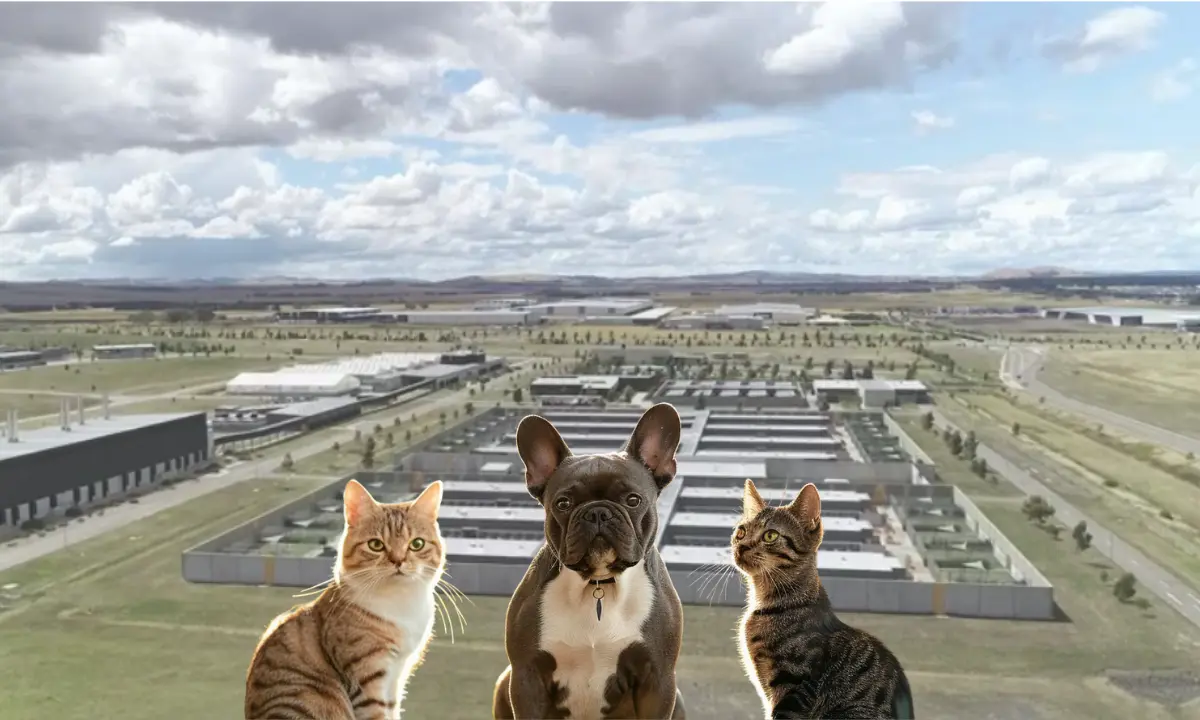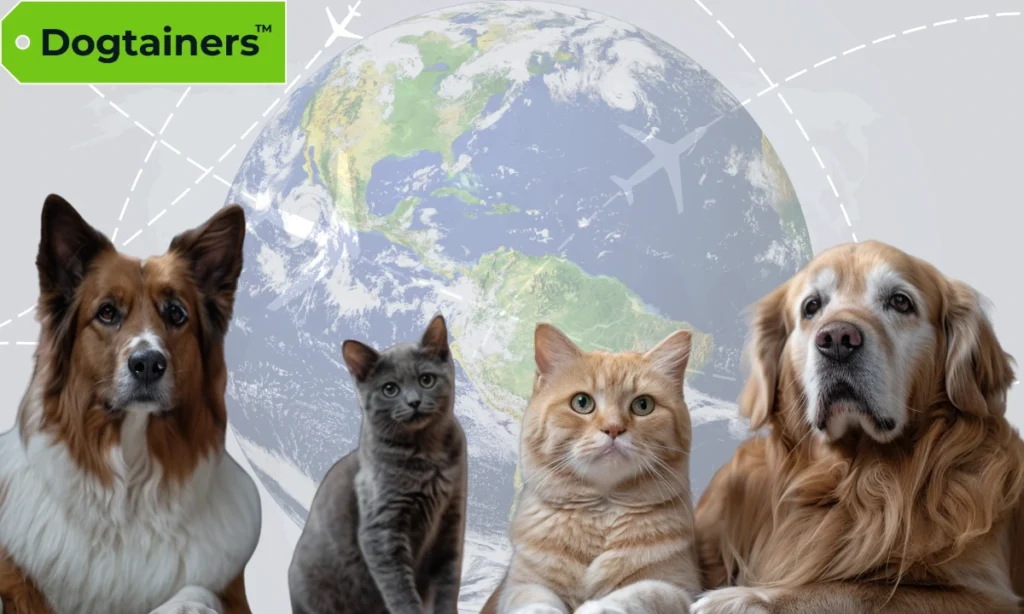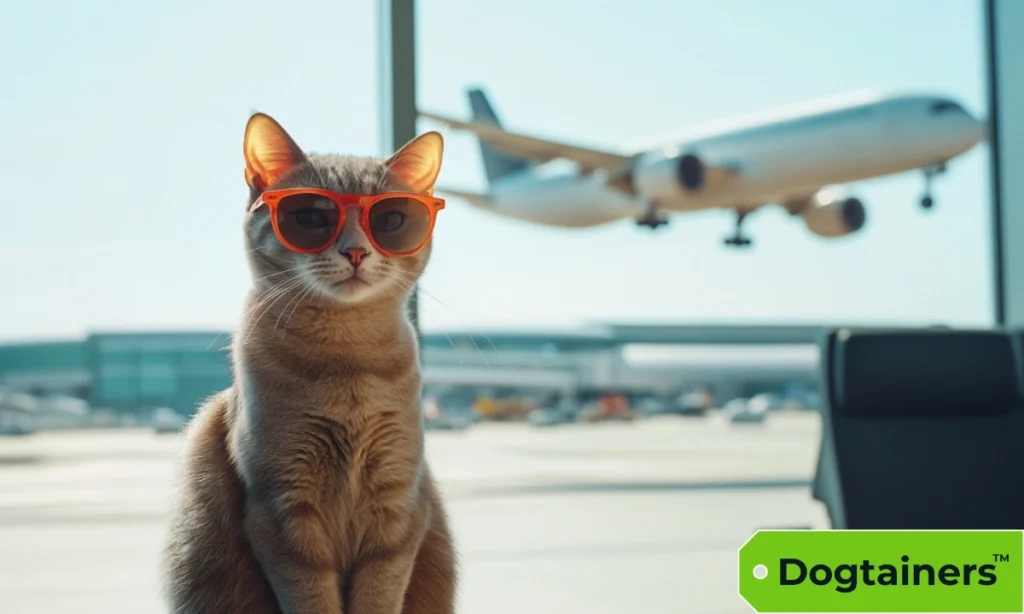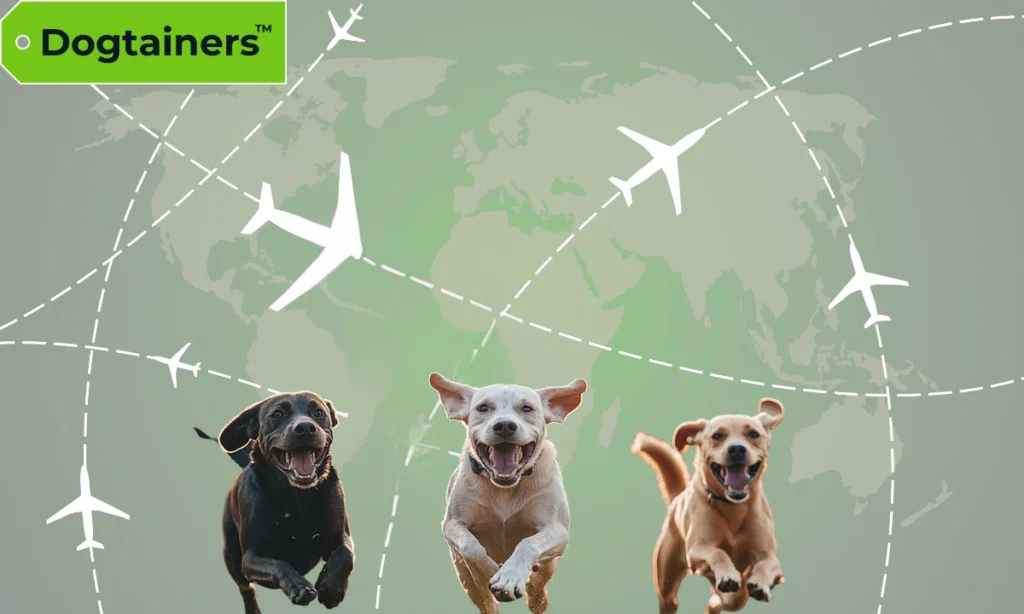Adhering to quarantine regulations is crucial when bringing pets into Australia. These rules are important for maintaining the country’s biosecurity.
The Mickleham Post Entry Quarantine Facility (PEQ) plays a vital role in preventing the introduction of exotic diseases. These can threaten native wildlife and the agricultural sector. Quarantine ensures all pets entering the country are healthy and don’t carry any harmful pathogens.
The Mickleham Post Entry Quarantine Facility is located near Melbourne, Victoria. It serves as the first stop for many pets arriving from overseas, providing comprehensive care and monitoring to ensure they meet all health standards required by Australian biosecurity laws.
Quarantine is not only a requirement in many cases but a critical measure to safeguard the health of Australia’s beloved pet population and its biodiversity.
Where is the Mickleham Post Entry Quarantine Facility?
The Mickleham Post Entry Quarantine Facility is at 135 Donnybrook Rd, Mickleham VIC 3064, Australia. This state-of-the-art facility is situated in northern Melbourne, approximately thirty minutes from Melbourne International Airport, making it easily accessible for incoming international flights.
Do all Pets Arriving in Australia Have to Quarantine?
Pet Quarantine in Australia
Travelling with pets to Australia may involve a mandatory stay in quarantine for your pet. Australia has stringent biosecurity laws to protect its unique flora, fauna and agricultural industries from exotic diseases and pests. To maintain this protection, all dogs and cats entering Australia must generally undergo quarantine – unless they arrive from New Zealand, Norfolk Island, and Cocos (Keeling) Island.
Pets arriving from these countries still need clearance, which we can help you with.
The pet quarantine process helps monitor the health of animals. It ensures they’re free from diseases and external parasites that could pose a threat. Australia is a rabies-free country, so protecting native animals and the wider population is crucial for authorities.
Dog Quarantine in Australia
Dogs arriving in Australia are subject to specific quarantine regulations. This depends on the departure country. Generally, quarantine for dogs ranges from 10 to 30 days – of course, they first need to meet all entry requirements.
These include but aren’t limited to:
- Vaccinations
- Microchipping
- Health certificates
- Parasite treatments
This duration gives authorities sufficient time to monitor your dog for signs of illness or disease. The actual duration may vary if any health concerns arise during their stay. For instance, dogs may have to stay in quarantine for longer than 30 days if they show signs of illness or disease.
The dogs are housed in individual enclosures. Trained professionals monitor their health during quarantine.
Cat Quarantine in Australia
Cats entering Australia are also under stringent quarantine requirements. Your cat should be microchipped, vaccinated against rabies, and have multiple tests before entering Australia. This includes the rabies titre test to ensure your cat is immune to the virus.
Treatment for internal and external parasites is also vital. This protects local wildlife against dangerous infections.
All these requirements must be documented and presented upon arrival in Australia. Cats must meet all pre-entry requirements.
Like dogs, cats must stay at the Mickleham Quarantine Facility for 10 to 30 days. Authorities may extend the quarantine beyond that if any health concerns arise during monitoring.
Booking Quarantine for Your Pet at the Mickleham Facility
You can’t bring your pet to Australia until you have met the import requirements. You need an import permit from the Department of Agriculture, Fisheries and Forestry (DAFF).
Once you get your import permit, you can book a place at the Mickleham Quarantine Facility. You need to apply through the Post Entry Biosecurity System. You need to pay quarantine fees in full before your pet gets released from the facility.
Booking quarantine is a vital step when bringing pets to Australia. Only pets with a confirmed quarantine booking will be allowed to board the plane.
Dogtainers can help you with this important part of the process.
Facilities Available at Mickleham Quarantine
The Mickleham Post Entry Quarantine Facility in Melbourne is equipped with modern and high-quality amenities to ensure the safety and comfort of pets during their quarantine period.
Housing and Care Facilities
- The facility features around 400 climate-controlled pens for dogs.
- There are 240 pens designed specifically for cats, ensuring they are comfortably housed.
- Each animal is housed in individual pens, and efforts are made to accommodate pets from the same family in adjacent pens whenever possible.
Exercise and Recreation
Biosecurity Officers give pets regular exercise. Dogs have access to exercise yards where they can move freely. These are set up to meet the exercise needs of most dogs. If a vet recommends extra exercise, officers will meet those needs for your dog.
General Care
Officers regularly bathe and groom pets as part of maintaining stringent biosecurity and hygiene standards. This ensures all animals remain in good health and any potential biosecurity risks are mitigated. If your pet needs specialist grooming, you can discuss this with the facility manager.
Overall, the Mickleham Quarantine Facility prioritises all pets’ health, safety and comfort. It provides a secure environment for quarantining your pet.
Pet Feeding at Mickleham
By default, the Mickleham Post Entry Quarantine Facility only feeds pets once a day. The facility uses dry food.
If your pet eats twice a day, prefers wet food or a combo of both, or has dietary requirements, contact the facility and complete their Animal Care Declaration.
Australian Quarantine food is as follows, in case you want to prepare your pet or they’re fussy.
DOG
Dry food:
- Royal Canin Mini Adult
- Royal Canin Medium Sensible
- Royal Canin Medium Puppy
- Royal Canin Hypoallergenic
Wet food:
- Royal Canin Medium Sensible
- Royal Canin Puppy
CAT
- Royal Canin Indoor Cat (dry)
- Royal Canin Kitten (dry and wet food)
- Royal Canin Indoor Pouch
- Royal Canin Sensible Dry
- Royal Canin Sensitivity (dry and wet food)
You can send specific food to the quarantine facility for your pet. But there are some guidelines you need to follow.
You must source the pet food from Australia and send it to the quarantine facility before your pet’s arrival. The package must be labelled clearly with:
- Pet’s name
- Permit number
- Pet importer’s name
Food sourced from Australia can be released with your pet. Sending it 2-3 weeks before your pet’s arrival is ideal. Include some buffer time to react in case the delivery goes AWOL.
You can order food from the below pet shops in Australia (these are the most common):
- My Pet Warehouse
- Petbarn
- Petstock
Ensure that you include your pet’s name on the address. Send the pet food to:
Department of Agriculture, Fisheries and Forestry
ATT: ‘PET NAME’ IP000 number | PRN: 0number
135 Donnybrook Road Mickleham Victoria 3064
Don’t send food on the flight along with your pet. Authorities destroy any food sent with animals upon arrival due to the possible biosecurity risks associated with the food.
Mickleham Quarantine Veterinary Care
Government veterinary officers perform a Biosecurity Health Check and examine pets for diseases during quarantine. Facility vets will only administer treatments or medication concerning biosecurity risks.
The facility doesn’t have a clinical vet. Pharmaceutical medications for the management of pre-existing or chronic conditions and general health issues aren’t available.
If your pet needs treatment by a clinical vet, you can call a private (non‑departmental) vet to the Post Entry Quarantine facility at your own cost. They can examine and treat your pet and prescribe medication.
The facility will contact you or an authorised agent like Dogtainers if they think your pet needs a vet. In an emergency, the facility will arrange veterinary care without delay.
Mickleham Post Entry Quarantine doesn’t have onsite emergency vet facilities or specialist equipment to manage veterinary emergencies. Pets with serious or chronic medical conditions immediately get transferred to the University of Melbourne Veterinary Hospital (U-Vet) in Werribee, Victoria.
This facility provides emergency veterinary services to the department, where your pet remains under biosecurity control and receives veterinary treatment. U-Vet invoices any costs for treatment directly to you – it’s not covered in the quarantine fees.
Release Protocols at PEQ in Mickleham
You or your authorised agent must collect your pet and their crate on the release date. Pet collection is between 10:00 and noon.
You pick up your pet from the quarantine facility: 135 Donnybrook Road Mickleham VIC 3064.
- Pets must be collected by the person named as importer on the import permit or their authorised agent. Your authorised agent can be a pet transport company like Dogtainers. We can collect your pet from quarantine and bring them to your new residence in Australia.
- You must notify staff at the quarantine facility of your authorised agent’s details before the eligible release date. Photo identification must be provided at the time of collection.
- The person in charge of the pet is responsible for the collection and removal of the transport crate from the PEQ facility. Forfeiture of the pet transport crate to the Department may incur additional fees for disposal.
Your pet can’t stay beyond their eligible release date. If you can’t collect your pet on the release date, you must make alternate arrangements for their pickup, boarding and care.
We have 50+ years of pet transport experience and can help you with these arrangements.
Mickleham Quarantine Facility FAQ
Can I send my pet’s favourite toys and blanket to Mickleham quarantine?
Can I visit my pet at Mickleham?
How much does quarantine cost at the Mickleham PEQ facility?
Conclusion
Travelling to Australia with your pet involves a lot of moving parts. The process isn’t as simple as jumping on a flight with your pet and coming here.
We have strict biosecurity measures in place to protect native populations. With Australia being rabies-free, authorities do their utmost to keep the deadly virus out of the country.
But there are other diseases and parasites we need to protect against. These can harm local flora and fauna and cause damage to the agricultural industry.
Quarantine at the Mickleham Post Entry Quarantine Facility is only one part of the pet import process. You must consider much more before getting to this stage, like:
- Vaccinations
- Microchipping
- Health checks
- Import permits
- Parasite treatments
Relocating to Australia is stressful enough, even without the added concern of transporting your pet safely. We’ve been helping people with stress-free pet transport for 50+ years. Our expert staff will help with import permits, health checks, quarantine and more.
Get a quote today with the best in pet transport.





Share this article